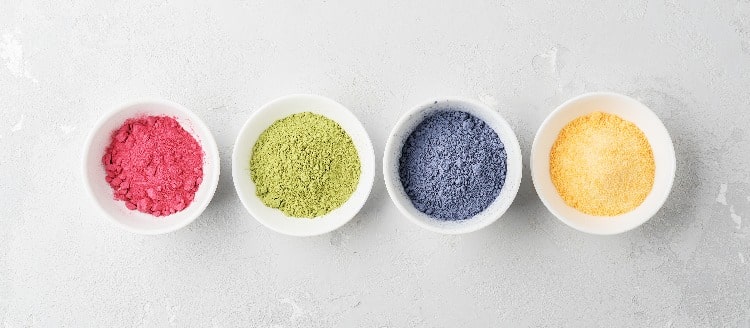Vegan Food Additives
Which Additives Cannot be Used in Vegan Food Products?

Today, additives are used to improve the appearance, taste, aroma and color of foods and to extend their shelf life. Food additives are substances that are not considered harmful to health, specified with the internationally accepted E code.
These additives affect whether the foods will be vegan depending on the sources from which they are obtained. Some of these additives and their E codes are:
E 101 - Riboflavin: Another name for vitamin B2 and can also be obtained from animal sources.
E 104 - Quinoline Yellow: May contain trace amounts of gelatin.
E 120 - Carmine: It is a red pigment obtained from cochineal insects.
E 252 - Potassium nitrate: Sometimes it can be produced from animal manure.
E 270 - Lactic acid: Can be obtained from animal or plant sources.
E 304 - Fatty acid esters of ascorbic acid: Can be obtained from animal or plant sources.
E 322 - Lecithin: Can also be obtained from animal or plant sources, usually soy or sunflower.
E 325 - Sodium lactate: Sometimes produced by fermentation of whey (from milk).
E 326 - Potassium lactate: Sometimes produced by fermentation of whey (from milk).
E 327 - Calcium lactate: Sometimes produced by fermentation of whey (from milk).
E 422 - Glycerol: Can be obtained from animal sources (processed animal fat).
E 441 - Gelatin: It is obtained from the collagen of animal bones or skin, especially pig and cattle.
E 542 - Bone phosphate: Obtained from the bones of animals.
E 901 - Beeswax: Produced by bees.
E 904 - Shellac: a resin secreted by a species of lactase in Asia.
E 913 - Lanolin: Made of sheep wool.
E 966 - Lactitol: Sugar alcohol generally obtained from milk.
E1105 - Lysozyme: Usually obtained from chicken eggs.
CLICK HERE TO GET A PRICE OFFER.

